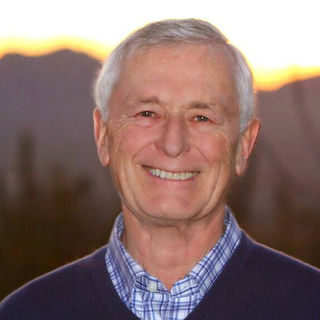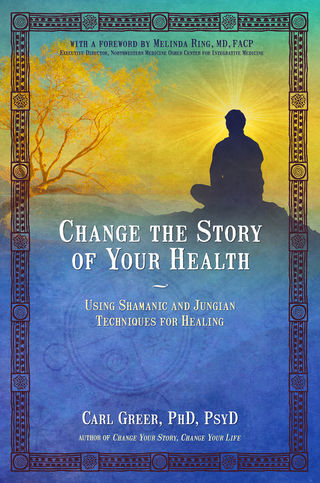Health
Change the Story of Your Health
The Book Brigade talks to psychologist Carl Greer.
Posted August 9, 2018

Physical health is influenced by much more than the state of one’s body. State of mind matters, and most of us have more power to influence it than we realize.
What do you mean by “changing the story of your health”?
Our stories are the way we understand events we’ve experienced. For example, is your story that you are a cancer patient, a cancer warrior, a cancer survivor, or someone who has had cancer but no longer identifies with that experience? You are the storyteller and can choose to tell a different story about your health to achieve greater health and well-being.
What is the importance of a person’s health story?
Consciously or unconsciously, we all identify with some story about our health. We might not be aware of how that story affects us until we start to examine it. By being scrupulously honest with ourselves about what our health story really is, we can begin the process of change.
What is your health story about eating, drinking, and weight? About movement and exercise, flexibility, balance, stamina, and strength? What’s your health story about sexuality, body image and acceptance, and changes due to midlife hormonal shifts? What is your health story about managing symptoms of an acute or chronic condition? Is there a song, poem, or saying that describes your health story? Is your story, “Everyone in my family dies from heart disease by the time they’re 60—I probably will too” or “It’s all downhill from here”? Stories like these can sabotage your commitment to better health and well-being.
How does a health story actually impact health?
Thoughts and emotions can produce physiological responses—for example, the release of cortisol, a stress hormone that leads to inflammation, a precursor to many diseases. Researcher Ellen Langer conducted a famous study in which a group of men in their late 70s and early 80s spent a week living as if they had traveled back in time two decades. They listened to the music and were surrounded by physical objects from that earlier era and were encouraged to talk about events that had occurred back then. Afterward, their mental sharpness, joint flexibility, posture, and gait were superior to that of a control group their age. This group of men seemed to have changed their story from “I’m old” to “I’m experiencing vitality like I did 20 years ago,” with surprisingly beneficial health changes. That’s just one example of the power of a health story impacting actual health.
Is it easy to change one’s health story?
It’s not always easy, but it is possible. Activities such as journaling about your health issues and how you relate to them, about which I provide detailed guidance in the book, can reveal what some of your conscious beliefs are. But just as importantly, you have to identify any unconscious beliefs that make you resistant to change. It’s important to integrate unconscious and conscious beliefs and emotions. Working with dreams, shamanic journeys, dialoguing, and nature can help with this integration, relativizing problems and giving you new insights.
What effects are possible when one simply changes one’s story—and by what mechanisms do effects occur?
Human beings by nature seek pleasure and avoid discomfort, but there can be serious long-term consequences for making this choice habitually. When you step back and talk to your body and your unconscious, you can get information that can help you step out of old patterns. I have a practice called “Healing with the Help of the Earth,” in which you lie on the ground outdoors to work with nature and your unconscious to learn what you need to let go of and what you need to bring in to improve your health condition. Shifting your brain into an integrative state, where the brain waves slow and the parasympathetic nervous system takes over, helps you access your unconscious wisdom. Being in nature facilitates this shift. Afterward, you may find it easier to exercise more, eat better, and manage stress, perhaps because you’ve learned something about what’s been blocking you.
What is the distinction you draw between healing and health, and why is it important?
Healing and health come from the same root word as “wholeness,” so you can’t look at your health in isolation from the other areas of life, such as your relationships or your job. Someone might not achieve a cure for their disease or condition, but they might find healing in other areas as a result of working with their health story. I’ve had clients who have stage four cancer write a new health story for themselves, gaining a sense of peaceful acceptance along with greater stamina and vitality. Although they weren’t “cured,” several said they experienced a healing that was psychological or even spiritual in nature.
In your experience, what are the most effective healing techniques?
All the practices I write about can help someone put their health challenges in perspective, integrate them into their larger story, and begin living according to a new and more pleasing health story. I encourage people to find what works best for them. One practice I suggest is dialoguing with a symbol or inner figure encountered in a dream or on a shamanic journey, or with an aspect of themselves that is a wise inner healer—or with their health condition or their feelings about it. Dialoguing can be combined with psychological approaches to healing, such as cognitive behavioral therapy and psychodynamic techniques.
What does shamanic healing have to teach 21st century psychology?
I’ve worked with shamans around the world and, as a Jungian analyst, I see overlaps between these two healing traditions. Shamans enter a trancelike state on behalf of themselves or others to engage energies and bring them into an individual’s energy field to help achieve healing. Jungian analysts guide people in accessing wisdom found in the unconscious. Doing so can help them achieve psychological breakthroughs but also, sometimes, relief from physical ailments related to their psychological issues. Asking the unconscious for insights into healing can often cause something to shift.
Shamans believe in the importance of working with one’s past so that it lives within us differently—less negatively. They also say we have a future yet to be determined and we can choose one that is better for us and bring its energy or influence into the present. In focusing on challenges, we can forget to imagine what else we might experience. We can overlook our power to let a vision of new possibilities influence what’s happening in our lives right now.
Who is the target audience for this book, and why?
Change the Story of Your Health is for anyone willing to spend some time looking at their health in its various aspects to make changes they desire.
What is the single most important message you want readers to get?
I believe we have far more power than we think to work with our inner healing capacity. When we do, we can make changes that we couldn’t have made had we not done the work.
When it comes to your health and your experience of your body, you are the storyteller. You can write a different story of your health. Looking at your health story and how it evolved, and then writing a new story, can help you gain a greater sense of control over your health—and even potentially lead to improvements. Changing your health story takes effort, but it’s well worth it.
About THE AUTHOR SPEAKS: Selected authors, in their own words, reveal the story behind the story. Authors are featured thanks to promotional placement by their publishing houses.
To purchase this book, visit: Change the Story of Your Health.





